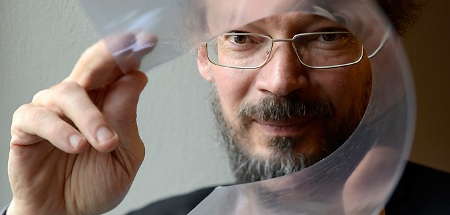Although interest on graphene research is growing all across the world, the European Union is lagging in this aspect, especially in applied research.

Professor Jari Kinaret, who is the Head of the Nanoscience Area of Advance at Chalmers, informed that Europe is not skilled at combining the entire chain, from fundamental research to product, when compared to Americans and Asians. Kinaret demonstrated his point with a pie graph.
The first graph depicts that so far academic graphene research has been fairly and evenly divided between the United States, Asia and Europe. Nevertheless, the pie graph describing patent applications from each area is remarkably variable jus as the size difference between Jupiter, Saturn and Mars.
Kinaret, who is also the Head of Graphene Coordinated Action, a project to strengthen and organize graphene research in the European Union, stated that it is necessary to fix this issue. The idea is that independently working research groups will be integrated in a network to benefitfrom one another’s findings.
This integration requires more funding, which is imminent in the form of ‘scientific flagships,’ the European Union Commission designation for advanced research activities with 10-year funding scheduled for launch in 2013. In 2011, Graphene Coordinated Action was picked as one among the six pilot projects to earn the flagship status, which would result in a funding of roughly SEK 10 billion during the entire period. However, the drawback is that only two pilots will be raised to the flagship status, leaving the remaining projects standing.
Kinaret commented that the selection of Graphene Coordinated Action will result in a significant increase in funding, as high as 50% higher than at present. If it is not selected, at least the current financial framework must be retained. Kinaret has recently filed the final report of the project to the European Union Commission. He is hopeful that Graphene Coordinated Action will have a chance.
Lead pencil is the connection between nanoscience and daily life. The one-atom-thick outer layer of a pencil trace is called the graphene. For this reason, the motto of Graphene Coordinated Action is ‘The future in a pencil trace.’
Graphene Coordinated Action is focused on applied research and thus included numerous key companies such as Nokia in the network. Nokia is exploring the use of graphene in mobile communications. Claudio Marinelli at the Nokia Research Department in Cambridge, England, predicts that graphene will be used in the company’s mobile applications by 2015 at the latest.
Source: http://www.chalmers.se